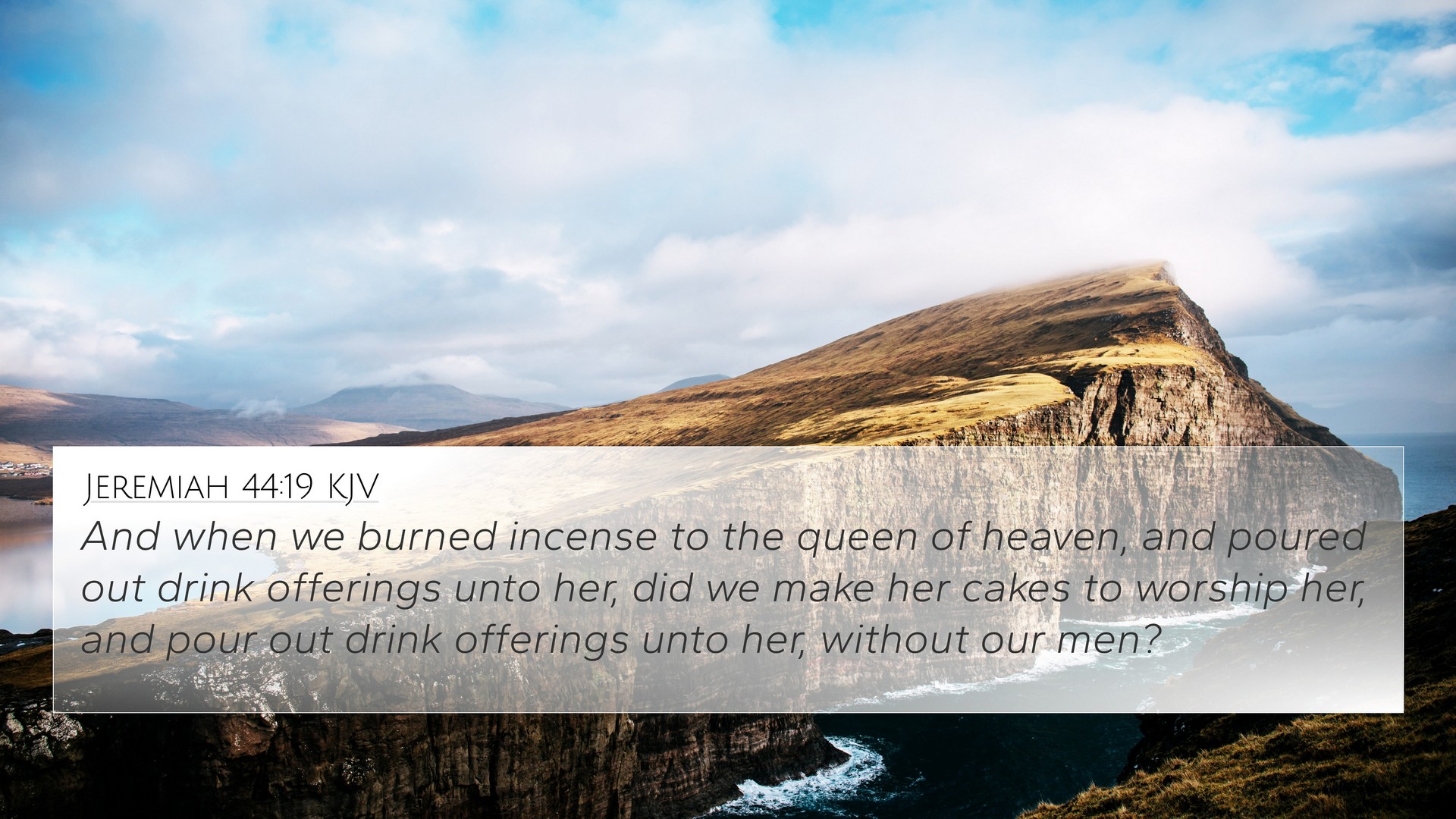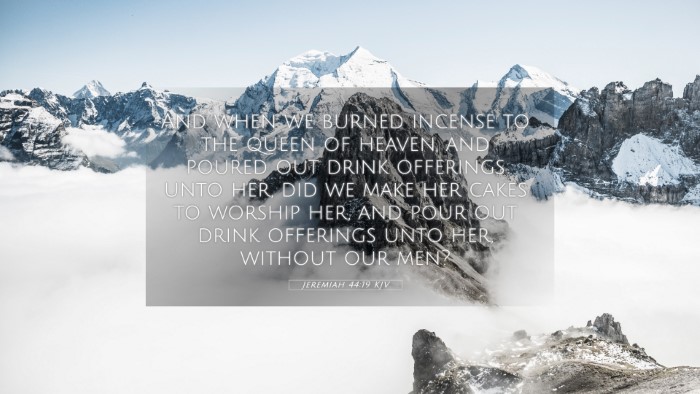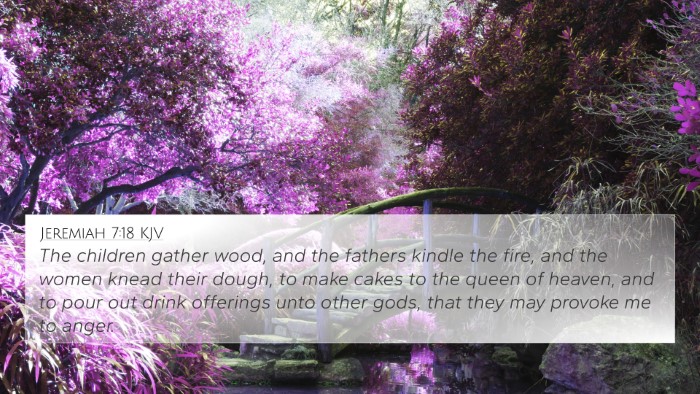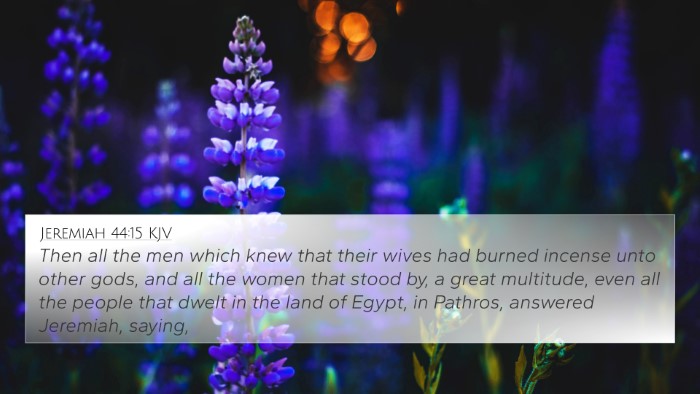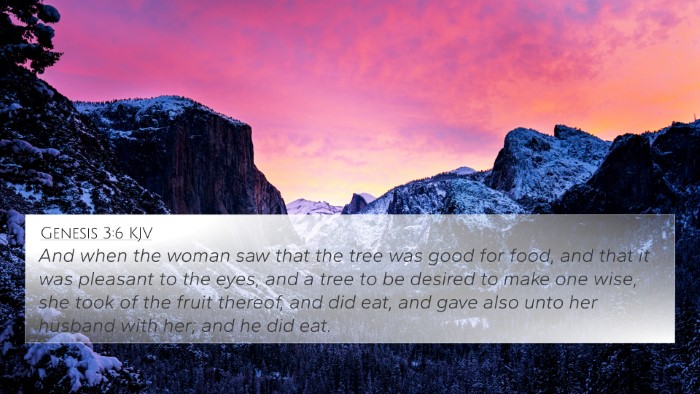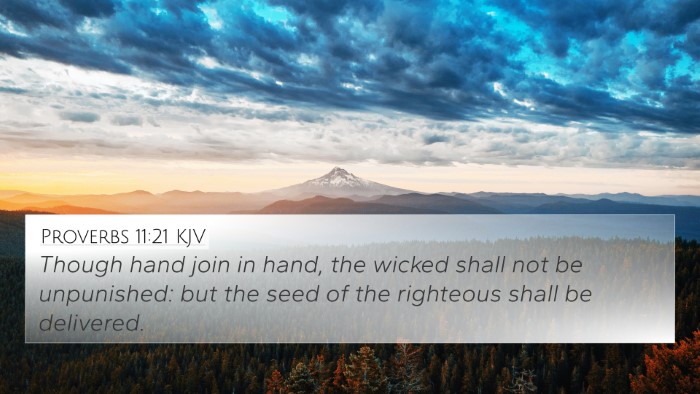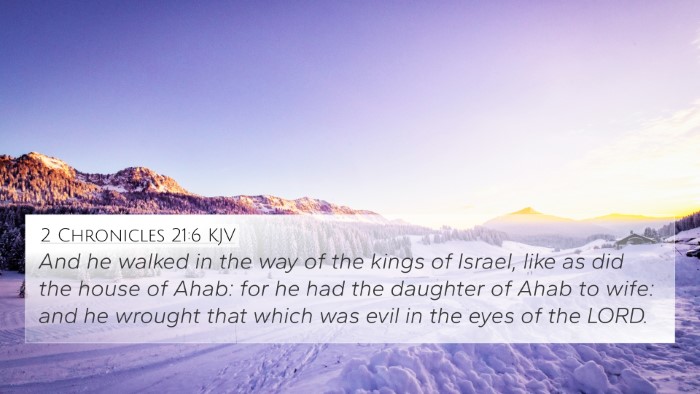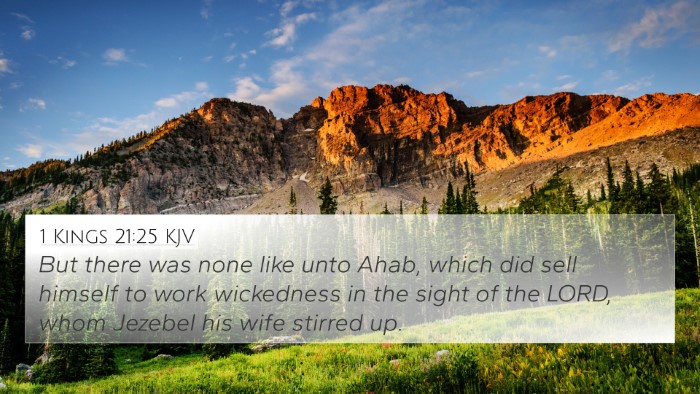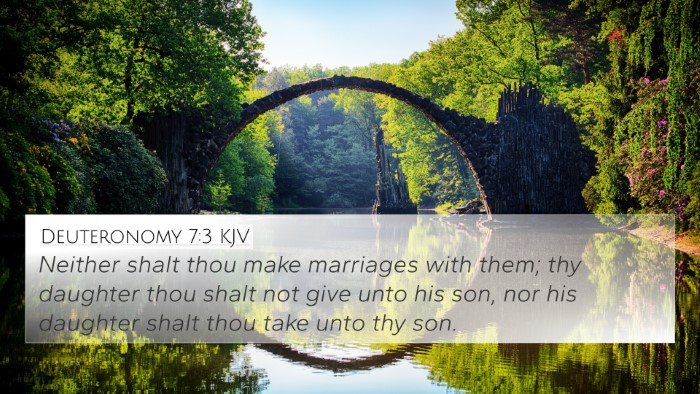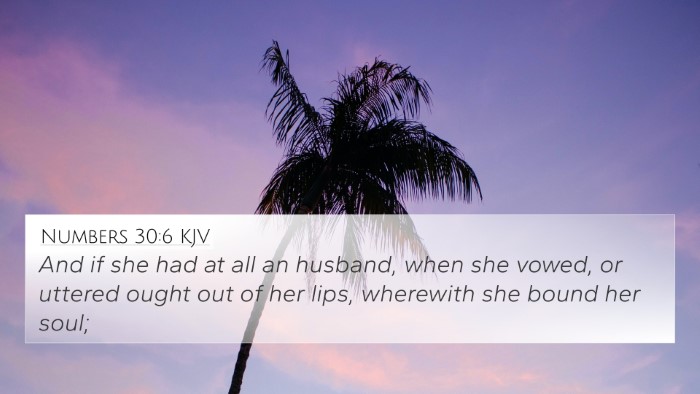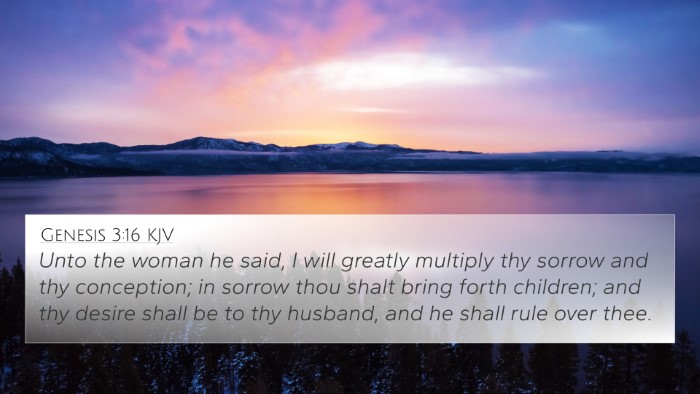Understanding Jeremiah 44:19
Jeremiah 44:19 states, "And when we burned incense to the queen of heaven, and poured out drink offerings unto her, did we make her cakes to worship her, and pour out drink offerings unto her without our men?" This verse captures the essence of the people of Judah’s rebellion against God, specifically their idolatrous practices. They justified their actions by claiming that their offerings brought them prosperity.
Analysis of Jeremiah 44:19
This verse is a part of Jeremiah's discourse to the remnant of Judah in Egypt. The people were caught between their past worship of Yahweh and a persistent inclination toward paganism. Specifically, they were worshipping the "queen of heaven", a figure likely linked to Ishtar or Astarte, which represented fertility and motherhood in ancient religions.
Key Themes
- Idolatry: The act of burning incense to a false deity reflects a significant turning away from Yahweh.
- Justification of Worship: The people rationalized their worship as beneficial, associating it with historical periods of abundance.
- Community Participation: The mention of pouring out offerings denotes a communal engagement in these rituals, highlighting how deeply embedded these practices had become.
Cross-References with Jeremiah 44:19
- Jeremiah 7:18: "The children gather wood, and the fathers kindle the fire, and the women knead their dough, to make cakes to the queen of heaven." This reference shows the continuity of the idolatrous practices.
- Romans 1:25: "Who changed the truth of God into a lie, and worshipped and served the creature more than the Creator." This parallels the theme of idolatry being a denial of God's sovereignty.
- Isaiah 65:3: "A people that provoked me to anger continually to my face; that sacrifice in gardens, and burn incense upon altars of brick." This highlights the sin of offering sacrifices to foreign gods.
- 2 Kings 23:13: "And the king defiled the high places... which were before Jerusalem, which were made by Solomon; and Astarte the abomination of the Sidonians." This shows the historical context of worshipping false gods in Judah.
- Acts 7:42: "Then God turned, and gave them up to worship the host of heaven." This reference indicates God's displeasure with idolatry, continuing the theme of judgment against such practices.
- Revelation 22:15: "For without are dogs, and sorcerers, and whoremongers, and murderers, and idolaters, and whosoever loveth and maketh a lie." This warns against the eternal consequences of idolatry.
- Ezekiel 8:14: "Then he brought me to the door of the gate of the Lord's house which was toward the north; and behold, there sat women weeping for Tammuz." This showcases the extent of idolatry among God’s people.
Theological Insights
Commentaries such as those from Matthew Henry suggest that this verse illustrates the foolishness of forsaking God for idols. Henry notes the absurdity of worshiping created images instead of the Creator. Albert Barnes emphasizes the cultural milieu influencing the Israelites, showing how ingrained these practices had become and revealing the tension between adherence to faith and societal pressure. Adam Clarke expands on the implications of such worship, noting how it often leads communities away from truth and righteousness.
Practical Applications
Incorporating themes from Jeremiah 44:19, modern believers can reflect on the nature of their worship. Are there ‘idols’ in their lives? Do they seek approval or wisdom from societal norms rather than from Scripture? Such reflections can lead to repentance and a renewed focus on true worship.
Connecting Biblical Texts
This verse and its analysis reveal crucial connections throughout the Bible, illustrating how idolatry led to Israel's downfall repeatedly throughout both Testaments. For those studying Biblical responses to idolatry, understanding these thematic Bible verse connections enhances insights into God's persistent call for fidelity.
Additional Resources for Understanding Cross-References
A comprehensive Bible cross-reference guide can be incredibly beneficial for those seeking to dive deeper into theological studies. It offers tools for Bible cross-referencing, helping believers identify connections between various Scriptures.
Further Study Suggestions
- Utilize a Bible Concordance to find related verses.
- Engage in Cross-Reference Bible Study sessions with others.
- Explore Cross-Referencing Bible Study Methods in group settings.
- Create thematic studies by identifying Bible verses that relate to each other.
Conclusion
The exploration of Jeremiah 44:19 not only provides insight into the historical context of idolatry in Judah but also serves as a timeless reminder of the need for faithfulness to God. By employing tools for cross-referencing and engaging with related Biblical texts, believers can develop a richer understanding of Scripture and its applications to their lives today.
